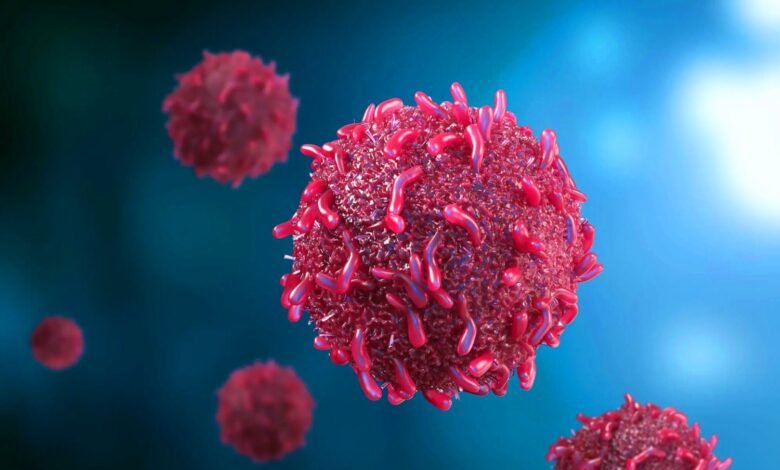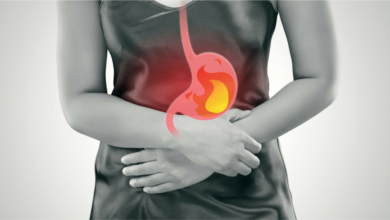Conquering Cancer: Empowering Strategies for Fighting Back

Conquering Cancer: Empowering Strategies for Fighting Back – In this article, we explore empowering strategies for conquering cancer. From understanding the disease and early detection to holistic approaches, cutting-edge medical treatments, emotional support, and building a strong support network, we provide insights and guidance on fighting back against cancer. Discover how lifestyle modifications, positive thinking, healthy diet, exercise, and complementary therapies can play a significant role. We also discuss the importance of emotional well-being, managing treatment side effects, and nurturing relationships
Cancer is a formidable adversary that affects millions of people worldwide. Dealing with a cancer diagnosis can be overwhelming, but there are empowering strategies that can help individuals fight back and regain control over their lives. Join us as we provide insights, guidance, and inspiration for those facing the challenges of cancer, offering hope and empowering strategies for fighting back.
Read More: The Role of a Healthy Diet in Cancer Prevention in 2023
Understanding Cancer
What is cancer?
Cancer is a complex disease characterized by the uncontrolled growth and spread of abnormal cells. These cells can invade nearby tissues and organs, causing damage and interfering with their normal functions.
Types of cancer
There are various types of cancer, each originating from different cell types. Some common types include breast cancer, lung cancer, prostate cancer, and colorectal cancer.
Causes and risk factors
Cancer can be caused by a combination of genetic, environmental, and lifestyle factors. Risk factors such as smoking, exposure to carcinogens, unhealthy diet, obesity, and family history can increase the likelihood of developing cancer.
Early Detection and Prevention
Importance of early detection
Early detection of cancer plays a crucial role in successful treatment outcomes. Regular screenings and awareness of common warning signs can help detect cancer at its earliest stages when treatment options are more effective.
Common screening methods
Screening tests like mammograms, Pap smears, colonoscopies, and regular check-ups with healthcare professionals can aid in the early detection of cancer. These tests are tailored to specific types of cancer and age groups.
Lifestyle modifications for prevention
Adopting a healthy lifestyle can significantly reduce the risk of developing cancer. This includes maintaining a balanced diet rich in fruits and vegetables, exercising regularly, avoiding tobacco and excessive alcohol consumption, and protecting oneself from harmful UV radiation.
Empowering the Mind and Body
The role of positive thinking
A positive mindset can have a profound impact on one’s journey with cancer. Cultivating optimism, practicing gratitude, and staying mentally resilient can help individuals navigate through the challenges of diagnosis, treatment, and recovery.
The power of a healthy diet
A well-balanced and nutritious diet is essential for cancer patients. Consuming foods rich in antioxidants, vitamins, and minerals can strengthen the immune system and aid in the body’s natural defense mechanisms against cancer cells.
Regular exercise and its benefits
Physical activity has numerous benefits for cancer patients. Regular exercise can improve strength and endurance, boost mood, reduce fatigue, and alleviate some of the side effects of cancer treatments.
Holistic Approaches to Cancer Treatment
Complementary and alternative therapies
Complementary therapies such as acupuncture, massage, and yoga can be used alongside conventional cancer treatments to alleviate symptoms, improve well-being, and enhance the body’s ability to heal.
Integrative medicine
Integrative medicine combines conventional medical treatments with evidence-based complementary therapies. It focuses on treating the whole person, addressing physical, emotional, and spiritual aspects of health.
Mind-body practices
Mind-body practices like meditation, guided imagery, and deep breathing techniques can help reduce stress, promote relaxation, and enhance overall well-being during cancer treatment.
Cutting-Edge Medical Treatments
Surgery
Surgery involves removing cancerous tumors and nearby tissues to eliminate the disease. It is often used for localized cancers that have not spread to other parts of the body.
Radiation therapy

Radiation therapy uses high-energy radiation to target and kill cancer cells. It can be administered externally or internally, depending on the type and location of the cancer.
Chemotherapy
Chemotherapy involves using drugs to destroy cancer cells throughout the body. It can be given orally, intravenously, or through injections and is often used to treat cancers that have spread or are difficult to remove surgically.
Immunotherapy
Immunotherapy harnesses the body’s immune system to fight cancer. It stimulates the immune response, helping the body recognize and destroy cancer cells more effectively.
Emotional Support and Mental Well-being
Coping with the emotional impact
A cancer diagnosis can trigger a wide range of emotions, including fear, anxiety, and sadness. Seeking emotional support from loved ones, support groups, or mental health professionals can provide individuals with the necessary tools to cope with these challenges.
Support groups and counseling
Support groups offer a safe space for cancer patients and survivors to share their experiences, exchange advice, and find solace in connecting with others who can relate to their journey. Professional counseling can also help individuals navigate the emotional complexities of cancer.
Mindfulness and meditation
Practicing mindfulness and meditation can help individuals reduce stress, enhance self-awareness, and improve emotional well-being. These techniques can be valuable tools for managing the emotional toll of cancer and promoting inner peace.
Overcoming Treatment Side Effects
Managing fatigue and nausea
Cancer treatments often come with side effects such as fatigue and nausea. Prioritizing rest, maintaining a healthy diet, staying hydrated, and following the guidance of healthcare professionals can help alleviate these symptoms.
Dealing with hair loss
Hair loss can be a distressing side effect of certain cancer treatments. Exploring options like wigs, scarves, or embracing a bald appearance can empower individuals to maintain their self-confidence and embrace their unique beauty.
Coping with changes in appearance
Cancer treatments may cause changes in appearance, such as weight fluctuations or skin discoloration. Engaging in self-care practices, using skincare products suitable for sensitive skin, and seeking professional advice can help individuals feel more comfortable and confident in their skin.
Nurturing Relationships and Building a Support Network
Building a strong support network of family, friends, and healthcare professionals is crucial during the cancer journey. Having people to lean on, share experiences with, and rely on for emotional and practical support can make a significant difference in a person’s ability to cope with cancer.
Communicating with loved ones
Open and honest communication with loved ones about feelings, needs, and concerns is vital. Sharing updates about treatment, discussing emotions, and expressing gratitude can strengthen relationships and foster a sense of unity.
Seeking professional help if needed
If feelings of sadness, anxiety, or distress become overwhelming, it is important to seek professional help. Mental health professionals can provide guidance, support, and therapeutic interventions to help individuals navigate the emotional challenges of cancer.
Inspiring Survivor Stories
Real-life stories of individuals who have triumphed over cancer can serve as a source of inspiration and hope. These stories highlight the resilience and strength of the human spirit and provide valuable insights into overcoming the challenges associated with cancer.
Read More: Gene Therapy for Cancer Treatment in 2023
Conclusion
Conquering cancer is a multifaceted journey that requires a comprehensive approach. By understanding the disease, embracing early detection and prevention strategies, nurturing both the mind and body, exploring holistic treatment options, seeking emotional support, managing treatment side effects, and building a strong support network, individuals can empower themselves in the fight against cancer. Remember, every battle is unique, and with determination, resilience, and the right strategies, it is possible to conquer cancer and embrace a brighter future.
FAQs
What is the most common type of cancer?
The most common type of cancer worldwide is breast cancer in women and lung cancer in both men and women.
Can a healthy lifestyle reduce the risk of cancer?
Yes, adopting a healthy lifestyle that includes regular exercise, a balanced diet, avoiding tobacco and excessive alcohol consumption, and protecting oneself from harmful UV radiation can significantly reduce the risk of developing cancer.
Are alternative therapies effective in treating cancer?
While alternative therapies may provide complementary support and symptom relief, it is important to consult with healthcare professionals and rely on evidence-based conventional treatments for cancer.
How can I support a loved one with cancer?
Supporting a loved one with cancer involves active listening, offering emotional support, assisting with practical tasks, accompanying them to appointments, and respecting their decisions and autonomy.
Is cancer always terminal?
Not all cancers are terminal. Advances in early detection, treatment options, and supportive care have significantly improved survival rates for many types of cancer. However, the prognosis depends on various factors, including the stage and type of cancer.







